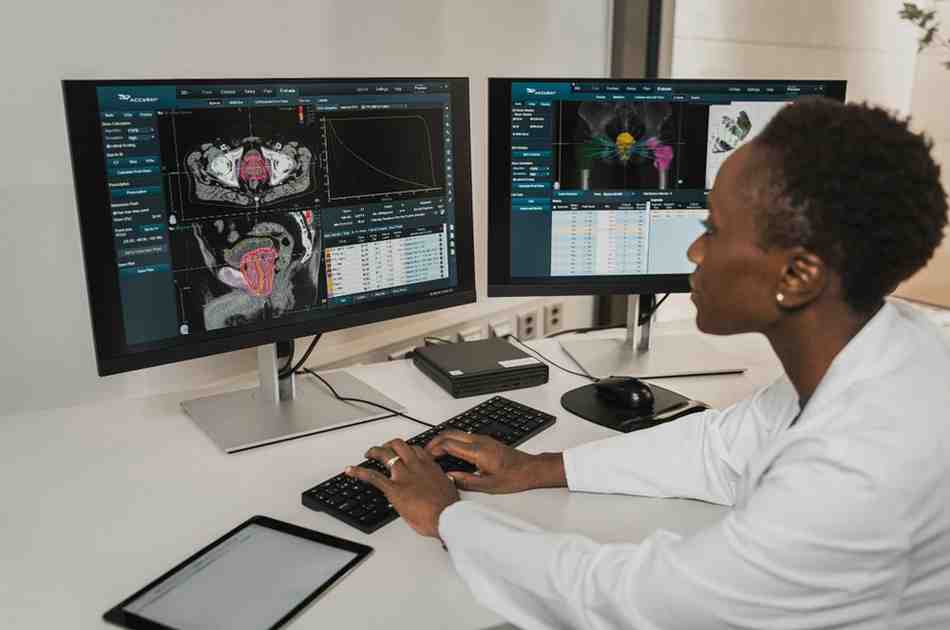Radiology Online Degrees: A Modern Path to a Vital Healthcare Career
Radiology plays a critical role in modern medicine, using imaging technology to diagnose and treat diseases. As healthcare evolves, so does education. Online degrees in radiology have emerged as flexible, accessible options for students and professionals aiming to enter or advance in this dynamic field. But are these programs a good fit? This article dives deep into radiology online degrees, their benefits, challenges, and what to consider before enrolling.
What is a Radiology Online Degree?
A radiology online degree offers academic training in radiologic technology, diagnostic imaging, or radiology administration primarily through digital platforms. Programs may range from associate degrees to bachelor’s or even master’s degrees, designed to prepare students for certification and employment as radiologic technologists, MRI technicians, or in related roles.
These programs combine theoretical coursework with practical training, often arranged locally through clinical partnerships or on-site internships to ensure hands-on experience.
Why Choose an Online Degree in Radiology?
The traditional image of radiology education involves on-campus attendance with rigid schedules. Online degrees break that mold by offering:
- Flexibility: Study at your own pace, fitting coursework around work or family commitments.
- Accessibility: Access top programs without relocating, beneficial for students in remote or underserved areas.
- Cost-Effectiveness: Often lower tuition and eliminated commuting or relocation expenses.
- Technology Integration: Exposure to cutting-edge digital tools and platforms preparing students for tech-driven workplaces.
For working healthcare professionals, online radiology degrees provide a pathway to upskill without interrupting their careers.
Comparing Radiology Online Degrees to Traditional Programs
| Aspect | Online Radiology Degree | Traditional On-Campus Program |
|---|---|---|
| Flexibility | High — learn anytime, anywhere | Low — fixed schedules and location |
| Hands-On Training | Local clinical placements required | On-site labs and clinical practice |
| Interaction | Virtual lectures and forums | Face-to-face with instructors and peers |
| Cost | Generally lower overall cost | Higher tuition and living expenses |
| Networking | More limited but growing with online platforms | In-person networking opportunities |
Pros and Cons of Radiology Online Degrees
Pros
- Convenient for Non-Traditional Students: Ideal for working adults, parents, or those far from campus.
- Self-Paced Learning: Allows students to revisit lectures and materials as needed.
- Broader Access: Opens education to rural or international students.
- Cost Savings: Eliminates some living and commuting costs.
Cons
- Requires Strong Self-Motivation: Online learning demands discipline and time management.
- Hands-On Practice Challenges: Practical skills depend on local clinical arrangements.
- Limited Immediate Peer Interaction: Can feel isolating without in-person engagement.
- Technology Dependence: Reliable internet and computer access are essential.
How to Choose the Right Online Radiology Degree Program
With many options available, selecting a program that fits your goals is critical. Consider these factors:
- Accreditation: Ensure the program is accredited by recognized bodies such as the Joint Review Committee on Education in Radiologic Technology (JRCERT).
- Clinical Partnerships: Confirm they provide local clinical placements for hands-on training.
- Curriculum: Review course offerings to ensure comprehensive coverage of radiologic principles and technology.
- Certification Preparation: Programs should prepare you for certification exams like the ARRT (American Registry of Radiologic Technologists).
- Faculty Credentials: Experienced instructors with clinical backgrounds enhance learning quality.
- Student Support Services: Look for tutoring, technical support, and career counseling tailored to online learners.
Frequently Asked Questions (FAQs)
Q: Can I become a certified radiologic technologist with an online degree? Yes, provided the program is accredited and meets certification requirements, including clinical training hours. Q: How do online programs handle the practical training required in radiology? They typically arrange clinical rotations at healthcare facilities near your location. Q: Are employers receptive to candidates with online radiology degrees? Yes, as long as the degree is from an accredited program and you hold the necessary certifications. Q: What technology skills do I need for an online radiology degree? Basic computer proficiency, comfort with learning management systems, and video conferencing tools are important. Q: How long does it take to complete an online radiology degree? Associate degrees typically take 2 years, bachelor’s degrees 4 years, but pacing can vary in online formats.
User-Focused Advice for Success in Online Radiology Programs
- Create a Dedicated Study Space: A quiet, organized area enhances focus.
- Set a Regular Schedule: Consistency helps manage coursework and deadlines.
- Engage Actively: Participate in forums, group chats, and virtual labs.
- Build Local Clinical Connections: Work with your program to secure quality clinical experiences.
- Utilize Support Services: Don’t hesitate to seek tutoring or tech help when needed.
- Stay Updated on Certification Requirements: Regularly check guidelines from certifying bodies.
Final Thoughts
Radiology online degrees offer a practical, flexible route into a rewarding healthcare profession. While they come with unique challenges, advancements in technology and program design continue to improve the learning experience. By carefully choosing an accredited program and committing to both online and hands-on components, students can successfully prepare for certification and a fulfilling career.
If you value flexibility, want to balance education with other commitments, and are ready for a hands-on healthcare role, an online radiology degree might be the right choice for you.
